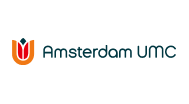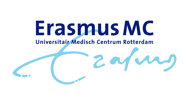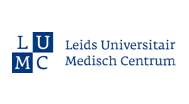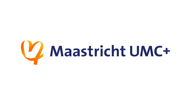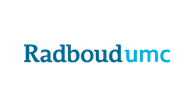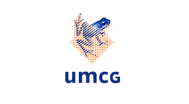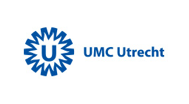Nederlandse kennisinstellingen tekenen Europees akkoord Evaluatie van wetenschappelijk onderzoek
De Nederlandse Federatie van Universitair Medische Centra (NFU), KNAW, NWO, Universiteiten van Nederland (UNL) en alle veertien individuele universiteiten tekenen het Europese verdrag ‘Agreement on Reforming Research Assessment’.
Dit verdrag van de Europese commissie, Science Europe en de European University Association (EUA), is in lijn met de doelstellingen van het landelijk programma Erkennen & Waarderen. In het verdrag staan afspraken over hoe onderzoeksresultaten te beoordelen zodat de kwaliteit en impact van het onderzoek groter worden, maar ook de integriteit wordt gegarandeerd. Daarbij is er in het verdrag expliciet aandacht voor het erkennen en waarderen van de verschillende taken van wetenschappelijk medewerkers. 350 organisaties uit meer dan veertig landen hebben interesse getoond om te gaan tekenen. Ook ZonMw heeft de intentie om te tekenen.
Het akkoord bevat principes en toezeggingen over wetenschappelijke integriteit, kwaliteit en impact, de diversiteit van wetenschappelijke activiteiten en samenwerking. Een van de uitgangspunten van het verdrag is dat onderzoek voornamelijk op kwalitatieve evaluatie beoordeeld moet worden, in plaats van op louter het aantal publicaties. Ook staat peer review centraal, ondersteund door een verantwoord gebruik van kwantitatieve indicatoren. De ondertekenaars verbinden zich aan de planning dat zij na een jaar met elkaar delen hoe zij werk maken van het verdrag, en dit na vijf jaar evalueren.
Veel van de gevraagde hervormingen zijn in Nederland al ingezet vanuit het programma Erkennen & Waarderen. Het is goed nieuws dat nu veel veranderingen ook buiten Nederland worden doorgevoerd. Wetenschap is immers bij uitstek een internationale bezigheid. Ondertekening beperkt zich niet alleen tot Europa. Met deze overeenkomst geven wetenschapsorganisaties uit de hele wereld aan dat het noodzakelijk is om de evaluatie van wetenschappelijk onderzoek te hervormen. Daarmee zetten al deze organisaties stappen om de diversiteit van loopbanen in de academische wereld ook op een passende manier te beoordelen. Nu zijn wetenschappers zelf aan zet om deze overeenkomst te vertalen naar hun eigen werkomgeving, benoemingsadviescommissies en beoordelingscommissies.
De ondertekenaars zullen ook internationaal praktijken en ervaringen uitwisselen om van elkaar te kunnen leren. Deze uitwisseling moet bijdragen aan internationaal vergelijkbare beoordelingspraktijken. Dat zorgt voor meer gelijkwaardige carrièrekansen voor wetenschappers die internationaal actief zijn.
------------------------------
Dutch knowledge institutions sign European Agreement on Reforming Research Assessment
The Netherlands Federation of University Medical Centres (NFU), the Royal Netherlands Academy of Arts and Sciences (KNAW), the Dutch Research Council (NWO), Universities of the Netherlands (UNL) and each of the 14 individual universities have signed the European ‘Agreement on Reforming Research Assessment’. This agreement between the European Commission, Science Europe and the European University Association (EUA) endorses the objectives of the national Recognition & Rewards programme. The agreement contains arrangements about how research results must be assessed in order to enhance the quality and impact of the research, but also ensure integrity. In addition, attention is explicitly given to recognising and rewarding academics for the various tasks they perform. In total, 350 organisations from more than 40 countries have indicated that they will sign the agreement. ZonMw also intends to sign.
The agreement contains principles and commitments regarding scientific integrity, quality and impact, the diversity of scientific activities and collaboration. One of its points of departure is that research must be assessed primarily on the basis of a qualitative evaluation, rather than on mere number of publication. Peer review plays a central role and is supported by the responsible application of quantitative indicators. The signatories commit to a timetable that stipulates that they will, after one year, share with each other how they are working on implementing the agreement and, after five years, evaluate their progress.
Many of the requested reforms have already been carried through in the Netherlands via the Recognition & Rewards programme. The fact that many changes are now also being implemented outside of the Netherlands is good news, since science is quintessentially international. The signatories are not confined to European organisations. With this agreement, scientific organisations throughout the world are sending a message that it is essential to reform the way in which research is assessed. In this way, all of these organisations are also taking steps to assess the wide variety of careers in the academic world in an appropriate way. Now it is up to the scientists to apply this agreement to their own working environment, appointments advisory committees and assessment committees.
The signatories will exchange practices and experiences internationally in order to learn from each other. This exchange is intended to contribute towards the adoption of internationally similar assessment practices, which will help ensure more equal career opportunities for scientists who are active internationally.


